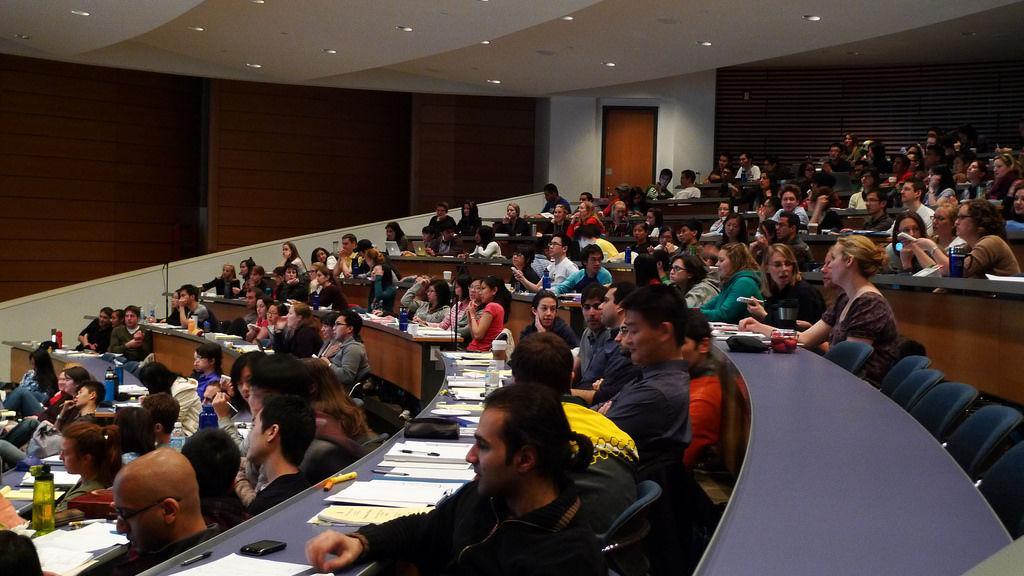With college tuition costs rising and state funding for higher education diminishing, more and more young Americans are finding themselves burdened by crippling student loan debt.
Plans for free college tuition gained traction over the last decade as in-state tuition costs at public universities rose 68 percent from 2008-2017, according to data from a U.S. News & World Report.
Per-student funding fell significantly as well during that same period, with Louisiana recording a decline of 44.9 percent, according to the Center on Budget and Policy Priorities.
Supporters of free college tuition plans claim that providing easier access to higher education would open doors to better jobs and reduce poverty rates across the country.
Politicians like Sen. Elizabeth Warren claim that eliminating student debts would enable more people to start businesses and become homeowners earlier in life, but it seems that they are jumping the gun a little.
It always pays to master the basics before moving on to more difficult techniques when learning a new skill, so we should not approach education reform any differently. Improvements need to be made from the ground up. Lower education in this country is rightly due for a makeover before college is made free for everyone.
The National Center for Education Statistics reported in 2017 that the national high school graduation rate was only 84.6 percent. More than 2.1 million people dropped out in that year alone, so it would not make sense to provide free higher education when many are already struggling to make it out of high school. Not only are the graduation rates low, but also its lower education proficiency rates are pitiful across the board.
Statistics from the Nation’s Report Card for 2017 show that 33 percent of eighth-graders scored “at or above proficient” in mathematics and 35 percent achieved that in reading. Proficiency rates for the same group in Louisiana reached only 19 percent in mathematics and 25 percent in reading. The state ranked No. 48 in education overall.
Every year when the latest national education rankings are published, I hear native Louisianans bragging about how at least they are better than Alabama, Mississippi or whatever state happens to fall below them for that particular year, but why is that considered a point of pride?
We should be ashamed of how poorly Louisiana contends in education and take it as a sign that improvements must be made, not only at home, but also across the country. Allowing the lower education system to remain in this derelict state of decay is unacceptable and a complete disservice to our youth and communities, yet free college tuition stands as the rally point on educational reform.
Almost all the Democratic candidates in the 2020 presidential election field support some form of free college tuition or loan forgiveness, but the most comprehensive plans by far are those outlined by Sens. Warren and Bernie Sanders.
Warren plans to make tuition free and to expunge up to $50,000 in student debt for households that make less than $100,000 per year. Her plan would also expand the Pell Grant system to help cover fees and other college related costs. She would pay for this estimated $1.25 trillion plan by levying a wealth tax of 2 percent annually on households whose assets total more than $50 million in value.
Under Sanders’ College for All Act, the federal government would cover 67 percent of tuition costs at public universities, and the states would be responsible for covering the remaining 33 percent. States that do not increase its higher education spending at home would not be eligible for this federal assistance, though.
The act would also lower interest rates on federal student loans from 4.32 percent to just 2.32 percent while increasing funding for federal work-study programs, which provide part-time jobs for undergraduates in financial need.
Sen. Sanders said his College for All Act would be paid for with a “Robin Hood Tax on Wall Street” that entails fees of varying degrees on stock trades, bonds and derivatives.
Although I support both the tax plans suggested by Warren and Sanders for their potential to eliminate some of the disparities caused by the enormous wealth gap in the U.S., I do not believe that their revenues should be used to fund free college tuition and eliminate student debt.
Lowering interest rates and enabling people to refinance their student loans seems like it would be more than enough to alleviate the stress associated with massive student debt. Free college tuition and loan forgiveness policies will lend someone the short end of the bargain no matter how well the plans are implemented.
Take people who have already paid off their student loans, for example. They would love to receive compensation for all the time and money that it took to pay for their college education, but nobody is talking about how they should get a piece of the pie.
Providing free college tuition would also de-value the worth of a college degree because so many people would have them. The job market would experience a flood of graduates, most of them sporting mediocre resumes at best, since any and everyone could attain a free college education.
The government should not be responsible for bailing out people who knowingly put themselves into obscene amounts of debt, either. It’s the equivalent of using tax dollars to pay off somebody’s car note for a Porsche simply because they want to live that kind of lifestyle.
I am not trying to discourage people from pursuing their dreams, which may require a diploma to accomplish. On the contrary, the world is yours, so reach out and take it, but try to be a little reasonable in your demands because not everyone is destined to become a president or CEO.
Draven Coleman is a 21-year-old mass communication senior from Wesson, Mississippi.
Opinion: Free college tuition not the key to education reform
September 8, 2019
college







